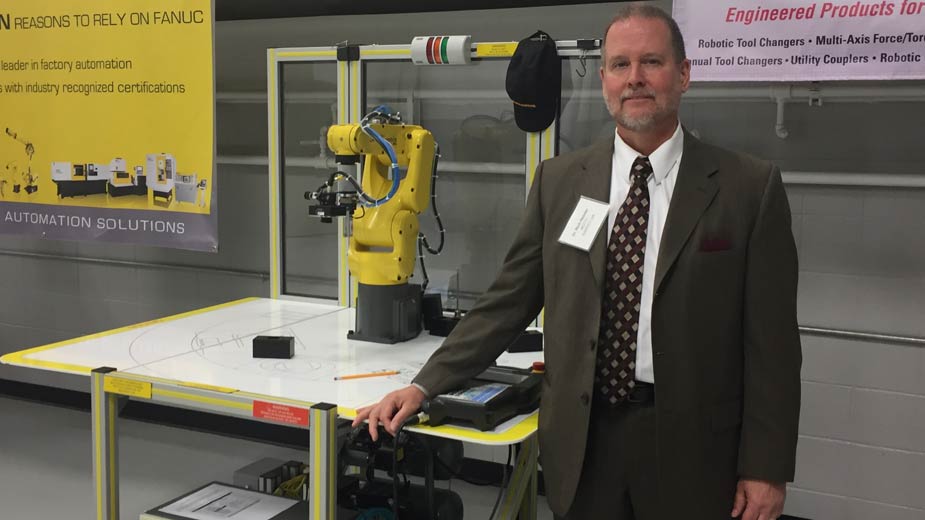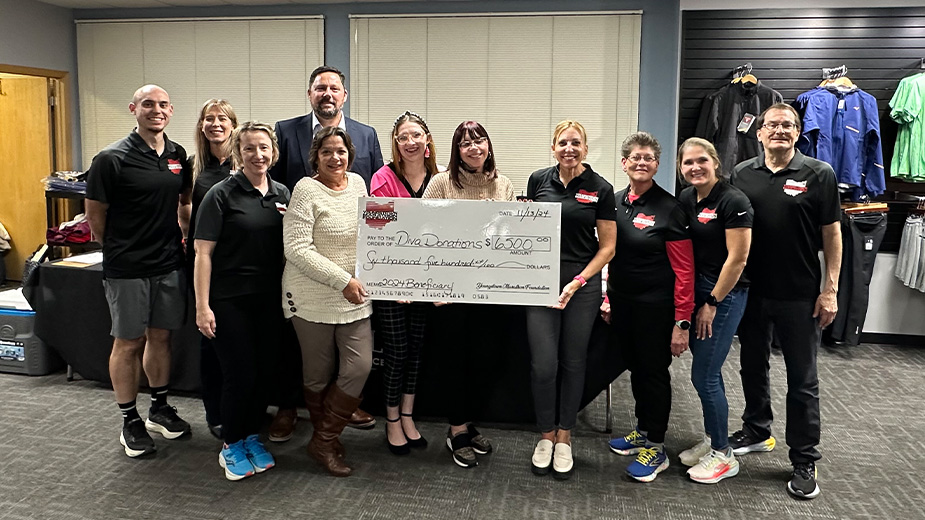Demand Rises for Industrial Maintenance Workers
CANFIELD, Ohio – As manufacturing becomes more technologically sophisticated and more automated, the demand for industrial maintenance tradesmen is likely to rise significantly over the next decade.
And, the very nature of these industrial maintenance jobs is changing, driven by advances in manufacturing that continue to command more of the shop floor every year.
That’s the consensus of a panel discussion Friday at the Mahoning Valley Manufacturer’s Coalition quarterly meeting.
“If your business changes, your entire culture and organization changes with it,” said Chris Zemba, industry sales manager for Rockwell Automation. Equipment is more software based today, and understanding the technical aspects of how these machines work is a big leap from 30 years ago.
“Manufacturing is changing. There’s going to be a bigger piece around analyzing data,” Zemba said.
Joining Zemba were Mike Prokop, innovation leader and chief electrical engineer at Taylor-Winfield Corp., Rich Hassler, engineering director at the Robotics and Advanced Manufacturing Technology Collaborative, or Ramtec, and coordinator at the Mahoning County Career and Technical Center, and Sara Tracey, career pathway specialist for the Greater Oh-Penn Apprenticeship Network.
New skill sets are especially critical when it comes to maintenance and quality, Zemba said. For example, some modern manufacturing equipment comes with high-tech sensors that transmit data that alerts operators and technicians of a potential failure of a component or machine. Industrial maintenance workers will need to understand how to interpret these data, he said, along with possessing traditional skills such as welding and fabricating.
“There’s going to be a portion of it where they have to understand some statistical analysis to better understand and be prepared for what’s going to happen,” Zemba said. Predictive and preventive maintenance ultimately improves the quality of the product, he noted.
Prokop observed that American manufacturing is in the midst of what many call the “fourth industrial revolution,” that is, a highly automated and real-time information age that is rapidly changing workplace culture and the way companies do business.
Taylor-Winfield builds large automated and robotics equipment for manufacturers, Prokop said. In the past, it was typical for a company to order an automated machine with programmable logic controllers that repetitively cranked out the same part week after week.
“That’s old school,” he said. “Now, if you cannot produce a machine that can do better than that, you’ll be out of business in five years.”
More customers are requesting just that, Prokop said. In pre-sales meeting with customers today, it’s not unusual to have sales, engineers, operations, maintenance, and information technology specialists sit the same table providing the specifics of what they need.
“These are people that are in the same room [and before] probably didn’t know each other,” Prokop said. “We’re being asked to provide machines that are more predictive in their maintenance,” so operators and industrial maintenance workers can stay ahead of any problems that might arise.
“It doesn’t replace good troubleshooting skills, but there’s an additional tool in the form of analytics that maintenance folks will need to become very proficient in,” he noted.
Training the next generation of these workers in advanced manufacturing skills is integral to the growth and expansion of industry, Hassler said. In particular, providing training opportunities across a diverse spectrum of manufacturing interests is especially important.
Ramtec, for example, provides training for students to earn five certifications related to aspects of advanced manufacturing. Two are in production robotics, the third is in automation, the fourth focuses on hydraulics and the fifth deals with CNC machining.
“The whole Ramtec concept is to fill the training needs that individuals have to have in beginning and intermediate levels so they can successfully compete,” Hassler said. The certifications, he noted, are based on information provided to the school from local industry.
“That’s an important aspect when it comes to maintenance,” he said. “You can’t troubleshoot if you don’t know how it works to begin with. We fill that need at the front door.”
There is also strong demand for industrial maintenance specialists for more traditional methods of manufacturing, added the Greater Oh-Penn Apprenticeship Network’s Tracey.
Tracey said her organization has been speaking with regional manufacturers in the Mahoning Valley and in western Pennsylvania who expressed their thoughts on industrial maintenance apprenticeship programs.
“The National Institute for Metalworking Skills, or NIMS, rolled out nine credentials in industrial maintenance that we have aligned with,” she said. “We had a very positive response.”
The objective is to create an apprenticeship program for industrial maintenance along the same lines of the group’s machining apprenticeship program launched two years ago, Tracey said.
Manufacturers in the region have told of their need for apprenticeship training in maintenance operations, basic mechanical systems, electrical systems, hydraulic systems and pneumatic systems, she said.
To a lesser degree, manufacturers said they would like to see credentials for electronic control systems, process control systems, maintenance welding, and maintenance piping, she said.
Pictured: Rich Hassler, engineering director at the Robotics and Advanced Manufacturing Technology Collaborative, or Ramtec, and coordinator at the Mahoning County Career and Technical Center.
Copyright 2024 The Business Journal, Youngstown, Ohio.



